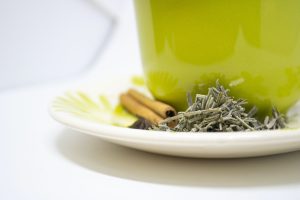Effective Herbal Remedies for Enhancing Digestion Naturally
Are you tired of dealing with digestive issues? Boost your digestion naturally with these handy alternative medicine tips. Imagine having the power to soothe your stomach, improve gut health, and enhance digestion.
From herbal teas and essential oils to acupuncture and Ayurvedic remedies, discover a comprehensive approach to better digestive wellness. Incorporate gentle exercise, natural supplements, and mindful eating techniques into your daily routine.
Reduce stress and enjoy a healthier, more efficient digestive system.
Key Takeaways
- Herbal teas like chamomile, ginger, and peppermint can soothe an upset stomach, relieve bloating and gas, and promote regular bowel movements.
- Probiotics, such as Lactobacillus acidophilus and Bifidobacterium lactis, can improve digestion and relieve constipation, while Saccharomyces boulardii and Bifidobacterium infantis may be helpful for diarrhea or inflammatory bowel disease.
- Acupuncture can provide relief from indigestion symptoms, reduce inflammation in the digestive tract, stimulate the digestive system, relieve stress, and balance energy in the body.
- Gentle exercise, mindful eating techniques, and stress reduction strategies such as mindfulness, regular exercise, self-care, and seeking support can all contribute to better digestive wellness.
The Power of Herbal Teas for Digestion
If you’re looking to improve your digestion, try incorporating herbal teas into your daily routine.
Herbal teas offer a wide range of benefits for digestive health. They can soothe an upset stomach, relieve bloating, and gas, and promote regular bowel movements.
One of the main benefits of herbal teas is their ability to reduce inflammation in the digestive tract.
Many herbs, such as chamomile, ginger, and peppermint, have anti-inflammatory properties that can help ease digestive discomfort.
Another benefit of herbal teas is their ability to stimulate digestion. Certain herbs, like fennel and dandelion, can help increase the production of digestive enzymes, which can aid in the breakdown of food and improve nutrient absorption.
Additionally, herbal teas can help to relax the muscles of the digestive system, which can prevent spasms and cramping.
Incorporating herbal teas into your daily routine is easy.
Simply choose a tea that suits your needs and enjoy it throughout the day.
You can drink herbal teas hot or cold, and you can even add a bit of honey or lemon for extra flavor. Remember to choose organic teas whenever possible to avoid pesticides and other harmful chemicals. So, why not give herbal teas a try?
They are a natural and effective way to support your digestive health.
Essential Oils to Soothe Your Stomach
Try using essential oils to soothe your stomach and ease digestive discomfort.
Essential oils have been used for centuries to promote overall well-being and can be a natural remedy for digestive issues. Some essential oils contain soothing herbs that can help calm inflammation and relax the muscles in your digestive system.
Peppermint oil is one of the most popular choices for soothing stomach discomfort. It contains menthol, which has been shown to help relax the muscles of the gastrointestinal tract and reduce spasms.
Another great option is ginger oil, which has been used for centuries to ease nausea and improve digestion. It contains gingerol, a compound known for its anti-inflammatory and digestive benefits.
You can dilute these essential oils with a carrier oil, such as coconut or jojoba oil, and gently massage them onto your stomach area. The aroma of these oils can also have a calming effect on your mind, reducing stress and promoting relaxation, which can further aid your digestion.
In addition to essential oils, incorporating digestive enzymes into your routine can also be beneficial.
Digestive enzymes are naturally produced in your body and help break down food into nutrients that can be absorbed.
However, factors like age, stress, and poor diet can reduce enzyme production, leading to digestive issues.
Taking a high-quality digestive enzyme supplement can help support your body’s natural digestive process and alleviate discomfort.
As we explore more ways to boost your digestion naturally, the next section will focus on incorporating probiotics into your daily routine. Probiotics are beneficial bacteria that help maintain a healthy gut microbiome, which is essential for proper digestion and overall health.
Incorporating Probiotics into Your Daily Routine
If you want to improve your digestion naturally, incorporating probiotics into your daily routine can be a meaningful change.
Probiotics offer a range of benefits, such as supporting a healthy gut and boosting immune function.
Choosing the right strains and incorporating them effectively can help you optimize your gut health and overall well-being.
Benefits of Probiotics
Incorporate probiotics into your daily routine to experience the numerous benefits they offer. Probiotics are not only beneficial for your digestive health but also for other aspects of your well-being.
Here are five key benefits of incorporating probiotics:
- Improved skin health: Probiotics in skincare products can help balance the skin’s microbiome, reducing issues like acne, eczema, and inflammation.
- Weight loss support: Certain strains of probiotics have been found to aid in weight loss by promoting the feeling of fullness, increasing metabolism, and reducing fat absorption.
- Enhanced immune function: Probiotics help strengthen your immune system, making you less susceptible to infections and illnesses.
- Mood regulation: The gut and brain are connected, and probiotics can positively impact your mental health by improving the production of neurotransmitters that regulate mood.
- Reduced inflammation: Probiotics have anti-inflammatory properties that can help alleviate symptoms of inflammatory conditions such as arthritis and inflammatory bowel disease.
Incorporating probiotics into your daily routine can have a profound impact on your overall health. Now, let’s delve into the next section and explore how to choose the right strains of probiotics.
Choosing the Right Strains
To optimize the benefits of probiotics, make sure you choose the right strains and incorporate them into your daily routine.
When it comes to selecting the right strains, it’s important to consider your specific digestive needs. Different strains of probiotics have different effects on the gut, so it’s essential to choose ones that address your specific concerns.
For example, if you’re looking to improve digestion and relieve constipation, strains like Lactobacillus acidophilus and Bifidobacterium lactis have been shown to be beneficial.
On the other hand, if you’re dealing with diarrhea or inflammatory bowel disease, strains like Saccharomyces boulardii and Bifidobacterium infantis may be more helpful.
Additionally, incorporating gut-friendly diet choices and natural remedies for digestive issues can further support the effectiveness of probiotics.
By nourishing your body with fiber-rich foods, fermented vegetables, and avoiding processed foods, you create a favorable environment for probiotics to thrive.
Transitioning into the next section on incorporating probiotics effectively, it’s important to discuss the various ways you can include them in your daily routine.
Incorporating Probiotics Effectively
Make probiotics a regular part of your daily routine to maximize their effectiveness in boosting digestion naturally. Incorporating probiotics into your daily routine can have numerous benefits for your overall health and well-being.
Here are five effective ways to incorporate probiotics into your daily routine:
- Start your day with a probiotic-rich breakfast, such as yogurt or kefir.
- Take a probiotic supplement daily to ensure you are getting enough beneficial bacteria.
- Include fermented foods like sauerkraut, kimchi, and pickles in your meals.
- Snack on probiotic-rich foods like miso soup or kombucha.
- Experiment with probiotic-rich recipes, such as homemade yogurt or fermented vegetables.
Not only do probiotics support digestion, but they can also aid in weight loss by promoting a healthy gut microbiome.
Additionally, probiotics have been shown to improve skin health by reducing inflammation and supporting a balanced complexion.
By incorporating probiotics into your daily routine, you can enhance your digestive health and experience the many benefits they offer.
The Benefits of Acupuncture for Digestive Health
Are you struggling with indigestion? Have you ever considered trying acupuncture?
Acupuncture has been shown to provide relief from indigestion symptoms such as bloating, nausea, and abdominal pain.
So why not try it and see if acupuncture can work wonders for your digestive health?
Acupuncture for Indigestion
If you’re looking for a natural way to improve your digestion, consider the many benefits of acupuncture for digestive health.
Acupuncture has been found to be effective in treating indigestion and promoting a healthy digestive system.
Here are five reasons why acupuncture can be beneficial for indigestion:
- Reduces inflammation: Acupuncture helps to reduce inflammation in the digestive tract, which can alleviate symptoms of indigestion such as bloating and discomfort.
- Stimulates digestion: Acupuncture points can be targeted to stimulate the digestive system, promoting better digestion and nutrient absorption.
- Relieves stress: Stress can disrupt digestion, leading to indigestion. Acupuncture helps to reduce stress and promote relaxation, allowing for better digestion.
- Balances energy: According to traditional Chinese medicine, indigestion is often caused by an imbalance of energy in the body. Acupuncture helps to rebalance this energy, improving digestion.
- Enhances overall health: Acupuncture is a holistic approach to health and can address underlying imbalances that may be contributing to indigestion, promoting overall well-being.
Consider trying acupuncture as a natural and effective way to improve your digestive health and alleviate indigestion symptoms.
Does Acupuncture Work?
Consider trying acupuncture as it can provide you with numerous benefits for your digestive health.
Acupuncture, a traditional Chinese medicine practice, involves inserting thin needles into specific points on your body to stimulate energy flow.
While it has been used for centuries to treat various ailments, recent research has shown that acupuncture can also be effective in improving digestion.
Studies have found that acupuncture can help regulate the digestive system by reducing inflammation, increasing blood flow to the digestive organs, and promoting the release of natural pain-relieving chemicals.
Additionally, acupuncture has been found to alleviate symptoms such as bloating, acid reflux, and irritable bowel syndrome. So, if you’re looking for a natural and integrated approach to improving your digestive health, acupuncture may be worth considering.
Ayurvedic Remedies for a Healthy Gut
You should regularly incorporate Ayurvedic remedies into your routine to maintain a healthy gut.
Ayurveda, the traditional Indian system of medicine, offers various herbal remedies and gut health tips that can improve digestion and promote overall wellness.
Here are some Ayurvedic practices to consider:
- Triphala: This herbal blend of three fruits (amalaki, bibhitaki, and haritaki) is known for its digestive benefits. It helps regulate bowel movements, detoxify the body, and support the growth of beneficial gut bacteria.
- Ginger: This common kitchen spice is a powerful digestive aid. It stimulates the production of digestive enzymes, reduces inflammation in the gut, and relieves symptoms of indigestion and bloating.
- Cumin: Adding cumin to your meals can improve digestion and prevent digestive disorders. It aids in the breakdown of food, reduces gas and bloating, and boosts nutrient absorption.
- Licorice: This sweet-tasting root is beneficial for soothing the digestive system. It helps reduce inflammation, protects the gut lining, and promotes healing of digestive ulcers.
- Probiotics: Ayurveda emphasizes the importance of a healthy gut microbiome. Consuming probiotic-rich foods like yogurt, kefir, and fermented vegetables can help maintain a balanced gut flora, support digestion, and boost immunity.
Incorporating these Ayurvedic remedies into your routine can help optimize your gut health and promote overall well-being.
Gentle Exercise for Improved Digestion
To improve your digestion, try incorporating gentle exercise into your daily routine.
Physical activity not only helps to keep your body in shape but also plays a vital role in supporting a healthy digestive system. Yoga has been found to be beneficial for digestion.
Certain yoga poses, such as the seated forward bend or the wind-relieving pose, can help stimulate the digestive organs and improve digestion.
Additionally, yoga for digestion often includes deep breathing exercises, which can promote relaxation and reduce stress, both of which can have a positive impact on your digestive health.
Breathing exercises for digestion, like diaphragmatic breathing or belly breathing, can help activate the parasympathetic nervous system, commonly known as the “rest and digest” mode.
This helps to relax the body and mind, enabling optimal digestion. By practicing these exercises regularly, you can enhance your body’s ability to break down food and absorb nutrients more efficiently.
Incorporating gentle exercise and breathing techniques into your daily routine can be a simple and effective way to improve your digestion naturally.
Now, let’s explore another approach to support your digestive health: natural supplements that aid digestion.
Natural Supplements to Aid Digestion
Taking probiotics is a natural way to support digestion and improve gut health.
These beneficial bacteria help maintain a balanced gut microbiome, promoting the breakdown of food and absorption of nutrients. In addition to probiotics, there are various natural remedies and herbal remedies that can aid digestion.
Consider incorporating these supplements into your routine for optimal digestive health:
- Ginger: Known for its anti-inflammatory properties, ginger can help soothe the digestive system and relieve digestive discomfort.
- Peppermint: Peppermint has been used for centuries to alleviate digestive issues such as bloating, gas, and indigestion.
- Fennel: Fennel seeds can aid digestion by reducing bloating, cramping, and inflammation in the digestive tract.
- Chamomile: Chamomile tea is a gentle herbal remedy that can calm an upset stomach, reduce inflammation, and promote relaxation.
- Slippery Elm: This herb contains mucilage, a substance that coats the digestive tract, protecting it from irritation and promoting healing.
Incorporating these natural remedies and herbal supplements into your daily routine can support healthy digestion and alleviate digestive discomfort.
However, it’s important to consult with a healthcare professional before starting any new supplements, especially if you have any underlying health conditions or are taking medication.
Mindful Eating Techniques for Better Digestive Function
Incorporate mindful eating techniques into your daily routine to improve digestive function and promote overall wellness.
Mindful eating involves paying attention to your body’s hunger and fullness cues, as well as enjoying and savoring each bite of food.
By adopting these techniques, you can enhance your digestion and prevent common digestive issues such as bloating, indigestion, and constipation.
One effective mindful eating technique is to eat slowly and chew your food thoroughly.
This allows your body to properly break down the food, making it easier to digest. Additionally, it gives your brain enough time to receive signals from your stomach when you are full, preventing overeating.
Another helpful technique is to practice gratitude before meals.
Take a moment to appreciate the food in front of you and the effort that went into preparing it. This can help stimulate the release of digestive enzymes and promote efficient digestion.
Incorporating gentle exercise for digestion, such as a short walk after meals, can also aid in the digestive process.
This helps to stimulate the muscles in your digestive tract and improve the flow of food through your system.
By incorporating these mindful eating techniques and gentle exercise into your daily routine, you can support your digestive function and enjoy improved overall wellness.
| Mindful Eating Techniques | Benefits | Tips and Tricks |
|---|---|---|
| Eat slowly and chew thoroughly | Enhances digestion and prevents overeating | Take your time and savor each bite |
| Practice gratitude before meals | Stimulates release of digestive enzymes | Reflect on the effort put into the meal |
| Engage in gentle exercise after meals | Improves flow of food through the digestive system | Take a short walk or do light stretching |
The Role of Stress Reduction in Digestive Wellness
Reduce the amount of stress in your life to significantly improve your digestive wellness.
Stress can have a profound impact on your digestive system, leading to symptoms such as stomach pain, bloating, and diarrhea.
By actively working to reduce stress, you can support your digestive health and overall well-being. Here are five effective ways to incorporate stress reduction into your daily life:
- Practice mindfulness: Engage in activities that promote mindfulness, such as meditation, deep breathing exercises, or yoga. These practices can help calm your mind and reduce stress levels.
- Get regular exercise: Physical activity releases endorphins, which are natural mood boosters and stress relievers. Aim for at least 30 minutes of moderate exercise most days of the week.
- Prioritize self-care: Make time for activities that bring you joy and relaxation, whether it’s taking a warm bath, reading a book, or spending time in nature. Taking care of yourself is essential for reducing stress.
- Establish healthy boundaries: Learn to say no to demands that overwhelm you and set realistic limits. Setting boundaries can help reduce stress and create a sense of balance in your life.
- Seek support: Reach out to trusted friends, family members, or a therapist to talk about your stressors and find healthy ways to cope. Sharing your feelings and receiving support can make a significant difference in your stress levels.
Frequently Asked Questions
Can Herbal Teas Be Used as a Substitute for Medication to Improve Digestion?
Herbal teas can indeed be a helpful substitute for medication when it comes to improving digestion.
They offer numerous benefits that can naturally support your digestive system.
With their soothing properties and ability to reduce inflammation, herbal teas can promote healthy digestion and relieve common digestive issues.
Incorporating natural remedies like herbal teas into your routine is a comprehensive and integrative approach to boosting digestion and maintaining overall wellness.
What Are Some Common Essential Oils That Can Soothe Stomach Discomfort?
Looking to soothe stomach discomfort naturally? Common essential oils can be your go-to solution. Peppermint oil is known for its soothing properties and can provide relief from digestive issues.
Ginger oil, with its anti-inflammatory properties, can also help ease stomach discomfort.
These essential oils have been used for centuries to promote digestion and improve overall gut health. Additionally, herbal teas offer numerous benefits for digestion, such as reducing bloating and improving bowel movements.
How Can Probiotics Be Incorporated into a Vegetarian or Vegan Diet?
To incorporate probiotics into your vegetarian or vegan diet, you can try consuming fermented plant-based foods like sauerkraut, kimchi, and tempeh.
Another option is to take probiotic supplements that are specifically formulated for vegetarians and vegans. Additionally, you can explore herbal teas and essential oils known for their digestive benefits, such as peppermint or ginger.
Remember to consult with a healthcare professional before making any changes, especially if you have a sensitive stomach or are taking medication.
Are There Any Risks or Side Effects Associated with Acupuncture for Digestive Health?
Acupuncture for digestive health can be effective, but it’s important to be aware of potential risks and side effects.
Some people may experience bruising, bleeding, or infection at the needle site. However, these risks are rare when performed by a qualified practitioner.
If you’re concerned about acupuncture, there are alternative ways to improve digestion naturally, such as dietary changes, herbal remedies, and stress reduction techniques. It’s always best to consult with a healthcare professional to find the right approach for you.
What Are Some Ayurvedic Remedies Specifically Recommended for Individuals with Sensitive Stomachs?
If you have a sensitive stomach, you’ll be pleased to know that there are Ayurvedic remedies that can help.
These natural alternatives can improve your digestion without relying on medication. Ayurveda recommends incorporating herbs like ginger and fennel into your diet to soothe your stomach.
Additionally, practicing mindful eating and avoiding trigger foods can also help alleviate discomfort. So, give these Ayurvedic remedies a try and enjoy a healthier digestive system naturally.
Elizabeth Redd: I am a passionate advocate for Health and Healing, dedicated to empowering individuals to live their best lives.
As the founder and publisher of Health and Healing, I have established myself as a guiding force in the wellness industry.
I am committed to providing the latest research, holistic approaches, and inspiring stories to open new possibilities for your health and healing journey.
Learn more about Elizabeth and Join Us at Health and Healing. Also, check out My About Page.






0 Comments